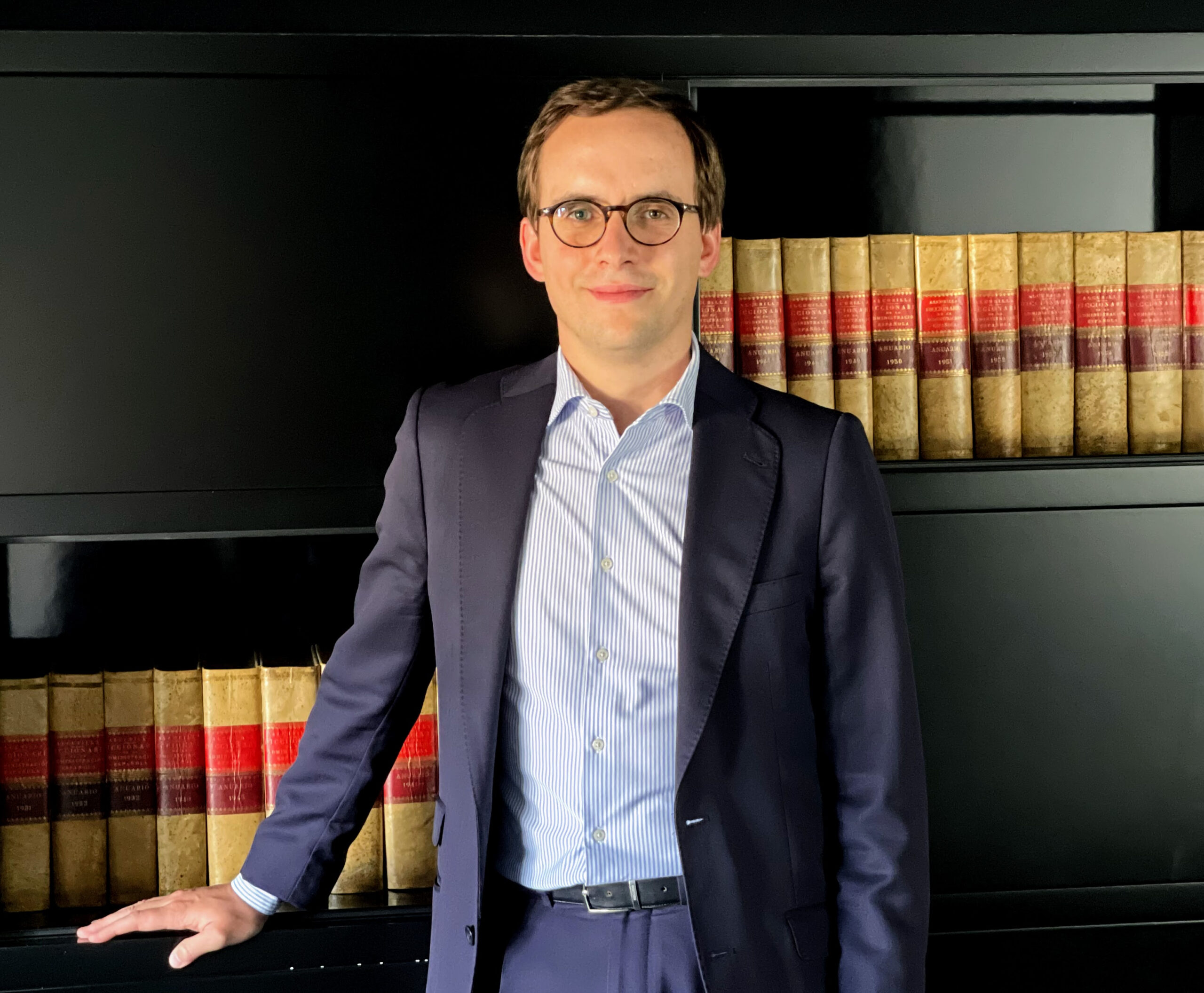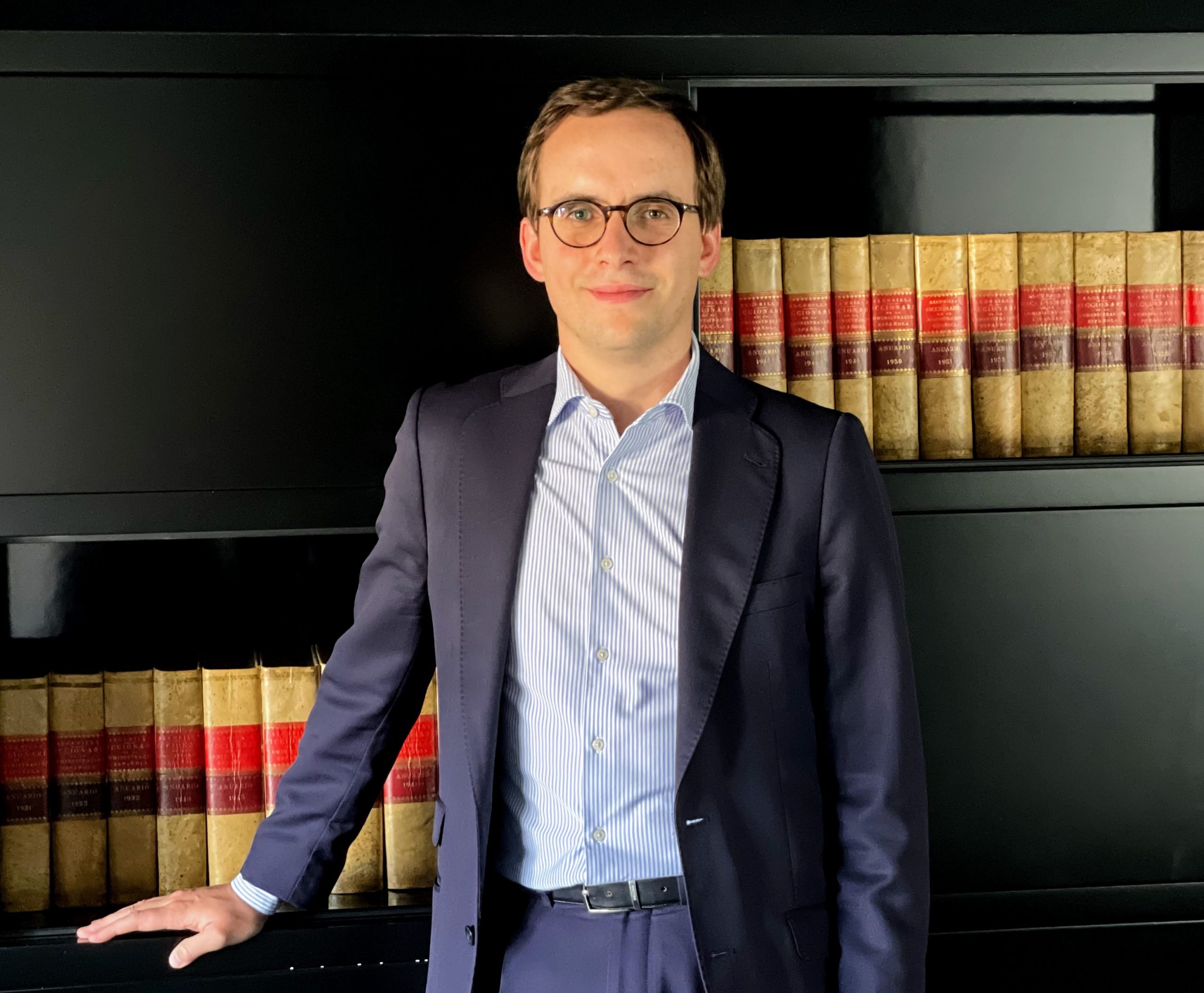Miguel Fernández Benavides: “In this career you can’t spend too much time licking your wounds”

Miguel Fernández Benavides, a lawyer in ONTIER’s Litigation and Arbitration department, is, at 31, one of the editors of the Hay Derecho blog, whose mission is to promote institutional regeneration, the fight against corruption and the defence of the Rule of Law. Featured in Iberian Lawyer’s “Rising Stars”, published last month, his extraordinary profile deserves to be better known. This young lawyer opens up to Iberian Lawyer and tells us how he recognised early on that memory was not his strong suit, which is why he refused to take the competitive examination to become a judge, and that he believes he has “the thirst for conflict” of any Litigation lawyer. He confesses that he would like to become a partner of the firm in which he feels “at home”, although he knows he still has some work to do.

Why did you study law? Did someone encourage you? Did it run in your family? Were you more of a student or a “practical case” one?
I started law almost by chance. There was no other lawyer in my family. When I was 17, I knew I wanted to go to university, but I was interested in several careers, especially political science, law and philosophy. In the end, I started law because it was the career I could take at the university closest to home.
I was always much better at solving practical cases than sitting down to study the topics for the exam. In fact, memory was never one of my strong points, and that’s why I discarded from very early on to become a judge.
Was it clear to you from the outset that Litigation would be your field? When did you realise that you had the qualities necessary to be a successful litigator?
I think that deep down, I have always had the desire for a battle that every litigator needs. However, during my undergraduate studies, Litigation was not among my favourite subjects, perhaps because the approach was excessively theoretical. I liked Commercial Law, Civil Law or Criminal Law more. At the end of the day, one’s nature always prevails, and I ended up doing what I really like: fighting, arguing and trying to make my position prevail.
As a lawyer, you started at ONTIER in 2013, then you left the firm to become a legal technician for the Spanish Congress and returned just over a year later. How did you live this experience outside private practice? Did you like what you saw but not enough to stay?
I have always believed that politics should be a place to pass through, not to stay. Consequently, when I decided to leave my profession, it was clear to me that it would be temporary.
My year in Congress was unforgettable. I was part of an eminently professional team with a high level of education and enormous political aspirations. We believed that we could change Spain and modernise the country, leaving behind the “guerracivilismo” and clientelist capitalism that had been weighing us down for the last decades. Unfortunately, none of that was possible. Even so, I would try again.
All in all, it has now been seven years at ONTIER. Who have been your mentors during this time? What have you learned from them, and what, you admit, do you still have to learn?
At ONTIER I have had many mentors, all of them of the highest professional and human level. Some are still by my side, and others have left. But it would be unfair not to highlight Cristina Camarero Espinosa as my main mentor during all these years. First, she trusted me, giving me the opportunity to enter the office, and then she transmitted her character to me, teaching me to fight until the last centimetre of the playing field.
What do I still have to learn? Everything. In this profession, you can’t get comfortable. You can’t sleep for a minute, and you have to be willing to learn new things every day.
How do you remember the first “big” case that fell into your hands? What are your feelings about it now? And the last one?
The first big case in which I was able to participate was the Martinsa Fadesa lawsuit, in which more than 1,500 million euros were claimed for directors’ liability. When I arrived at the firm in 2013, the case was already in cassation, but I was able to contribute my small grain of sand to the great work done by the team over the years. Although my contribution was very modest, I remember it now with a feeling of great responsibility, very similar to the one I feel every time a client puts his trust in me.
During the last year, with the arrival of the pandemic, I have focused on helping several companies from different sectors (mainly retail, fashion and hospitality) to renegotiate rents with their landlords, both out of court and in Litigation. We are living in an unprecedented situation, an atypical economic crisis that has put thousands of companies at the limit of their capacities.
As a good litigator, as a good lawyer, we assume you like to win. Have you lost a case so far? If so, please explain to us how you recover personally after a defeat. If not, please tell us your secret.
I like to win but it doesn’t always happen. If any lawyer claims to have never lost, he is simply lying. In the face of defeat, I think it is good to analyse mistakes or things that could have been done differently because lessons can be learned from this. But above all, I believe that the most important thing is not to dwell on the defeat more than necessary and not to spend too much time licking our wounds.
In the medium where you write, among other things, you openly fight against corruption and for transparency in administrations and institutions, public bodies and even companies. Is it difficult for a Business lawyer to publicly denounce certain issues, or does this no longer happen? Or maybe has corruption become so “normalised” that it is no longer news, no longer “shocks”?
In our country, corruption and the lack of transparency of the administrations are two of the main evils present in the public sphere and, to a certain extent, they have become normalised. In the end, this ends up infecting many companies in what has come to be defined as crony capitalism.
At “Hay Derecho”, we are trying to correct this trend, promoting a new way of understanding the management of public affairs. On a personal level, it has always been clear to me that practising lawyers have certain limits because our clients are the priority. But I believe that this cannot be an excuse to fold our arms.
Would you like to be a partner of ONTIER? We imagine that is where you are heading…
I feel ONTIER as my home, and, of course, I would like to become a partner. But for that, there is still a lot of work ahead.
Finally, like any good writer, indeed, you like to read. A recent book that you would recommend to your colleagues?
Right now I am reading “Los cuadernos de don Rigoberto”, by Mario Vargas Llosa. A novel set in Miraflores’s neighbourhood (Lima) that talks about freedom, love, beauty and sensuality. What more could you ask for?
By Desiré Vidal
To read the full article on issue number 106 click here












